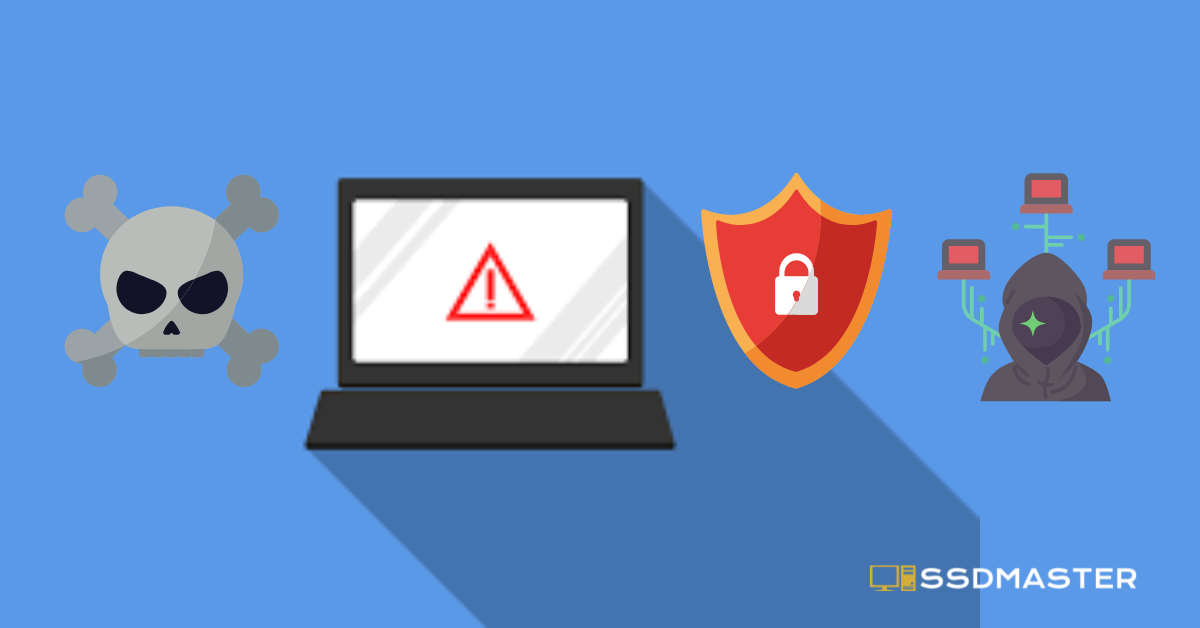As we rely more on technology in our daily lives, it’s crucial to protect our devices from malware, viruses, and other cyber threats. Solid-state State Drives (SSDs) are a common storage option for computers and laptops. However, just like traditional hard drives, SSDs can be vulnerable to viruses and malware. In this article, we will discuss how to protect SSD from viruses and malware.
What is an SSD?
Before we dive into how to protect your SSD from viruses, let’s first understand what an SSD is. SSDs are a type of storage device that uses flash memory to store data. Unlike traditional hard drives, SSDs have no moving parts, which makes them faster and more reliable. SSDs have become increasingly popular in recent years, and many laptops, Gaming consoles, and desktop computers come with SSDs as the primary storage option.
Why Do SSDs Need Protection?
Just like traditional hard drives, SSDs are vulnerable to viruses and malware. Viruses and malware can infect your SSD and compromise your personal information. Cybercriminals can steal your data, passwords, and personal information, which can lead to identity theft and financial loss.
How to Protect Your SSD from Viruses?
Here are some steps you can take to protect your SSD from viruses and malware:
1. Install Antivirus Software
The first step to protecting your SSD from viruses and malware is to install reliable antivirus software. Antivirus software scans your computer for viruses and malware and removes them if they are found. There are many antivirus software options available, both free and paid. Some popular antivirus software includes Norton, McAfee, and Avast.
2. Keep Your Antivirus Software Updated
Installing antivirus software is not enough. It’s crucial to keep your antivirus software updated to ensure it can detect and remove the latest viruses and malware. Antivirus software updates often include new virus definitions, which allow the software to detect and remove new viruses.
3. Be Careful When Downloading Files
One of the most common ways viruses and malware infect your computer is through downloaded files. Be cautious when downloading files from the internet, especially if the source is unknown or suspicious. Avoid downloading files from untrustworthy websites or links sent in unsolicited emails.
4. Enable a Firewall

A firewall is a security feature that blocks unauthorized access to your computer or network. Enabling the firewall on your computer can prevent viruses and malware from accessing your SSD. Most operating systems come with a built-in firewall, which can be enabled in the settings.
5. Use a Virtual Private Network (VPN)
A Virtual Private Network (VPN) encrypts your internet traffic and protects your online privacy. Using a VPN can prevent hackers from intercepting your data and infecting your SSD with malware.
6. Regularly Backup Your Data
Regularly backing up your data is essential in case of a virus or malware attack. If your SSD is infected, you can restore your data from a backup and avoid losing important information. There are many backup options available, including cloud-based backups and external hard drives.
Conclusion
In conclusion, protecting your SSD from viruses and malware is essential in today’s digital age. Installing reliable antivirus software, keeping it updated, being cautious when downloading files, enabling a firewall, using a VPN, and regularly backing up your data can help protect your SSD from viruses and malware. Remember to stay vigilant and keep your computer and personal information safe.
FAQs
Can a VPN protect my SSD from viruses?
Using a VPN can encrypt your internet traffic and protect your online privacy, which can prevent hackers from intercepting your data and infecting your SSD with malware. However, it’s still important to install antivirus software and be cautious when downloading files.
Does formatting my SSD help protect it from viruses?
Formatting your SSD can remove viruses, but it will also delete all data on the drive. It’s best to use antivirus software to scan and remove viruses before considering formatting your SSD.
Should I disable the Windows indexing service to protect my SSD from viruses?
Disabling the Windows indexing service can help prolong the life of your SSD by reducing unnecessary read/write operations, but it won’t necessarily protect it from viruses. It’s still important to have antivirus software installed and updated.
How often should I scan my SSD for viruses?
It’s recommended to scan your SSD for viruses at least once a week, or more frequently if you frequently download files from the internet or receive email attachments.

